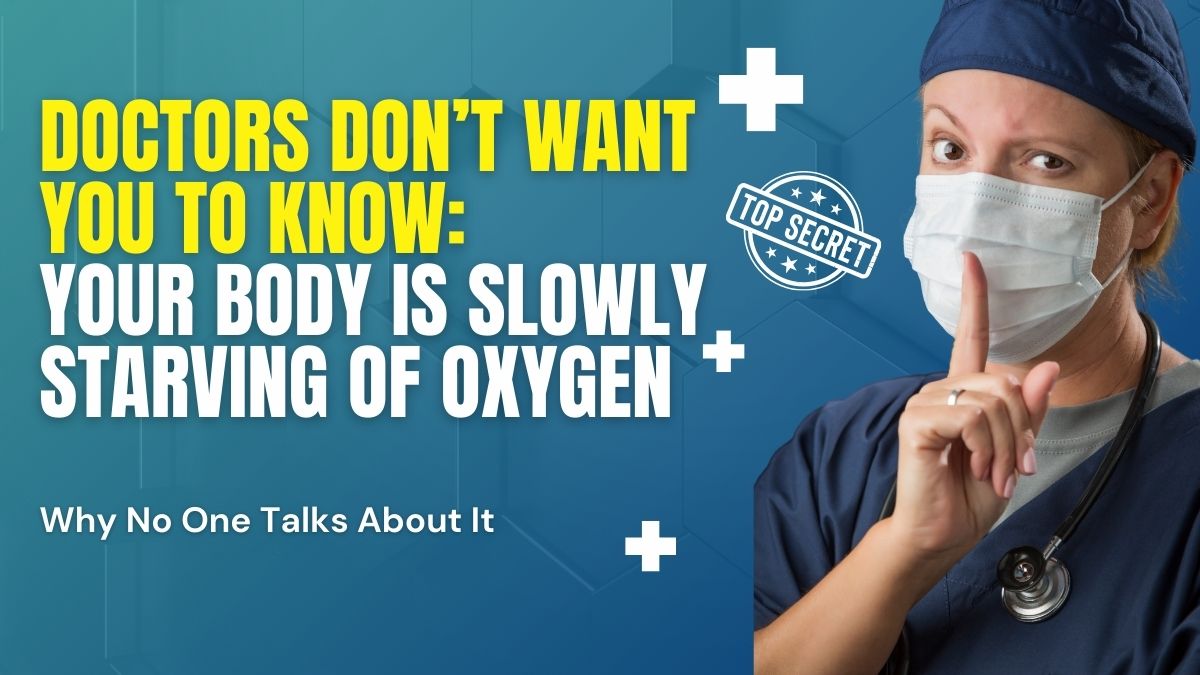You breathe every few seconds. But shockingly, your cells may still be suffocating. This isn’t about how deep you inhale — it’s about what’s actually reaching your cells.
Welcome to cellular hypoxia — the silent oxygen crisis almost no one talks about.
Even though your lungs are working, poor circulation, chronic inflammation, stress, and environmental toxins can block oxygen from getting where it’s needed most. The result? Your body slowly slips into an invisible emergency state. Cells struggle to survive. Organs begin to weaken. And your energy tanks — without warning.
What Happens When Your Cells Don’t Get Enough Oxygen?
- Mitochondria shut down – These tiny “power plants” in your cells need oxygen to make energy. Without it, fatigue sets in fast.
- Brain fog kicks in – The brain consumes 20% of your body’s oxygen. Starve it, and memory, focus, and clarity fade.
- Organs weaken – The liver, kidneys, and heart become sluggish. Over time, this can lead to failure, even if tests look “normal” now.
- Acidity rises – Low oxygen forces cells into emergency “anaerobic” mode, which produces acid and speeds up aging.
- Cell death accelerates – Without enough oxygen, your cells literally give up. Apoptosis (programmed death) increases, shrinking your potential lifespan silently.
Why No One Talks About It
Modern medicine focuses on emergencies — not optimization. If your oxygen saturation is above 90%, you’re “fine.” But what they don’t measure is how much oxygen is reaching the mitochondria — the engines inside your cells.
You could have 97% blood oxygen… and still have cellular-level suffocation.
This is why some people feel exhausted even after sleeping 8 hours. Why they get dizzy after standing. Why they need coffee to feel normal. It’s not motivation — it’s mitochondrial oxygen debt.
Real-Life Clues You Might Be Oxygen-Starved
- Constant yawning or sighing during the day
- You feel short of breath with mild exertion
- Mental burnout or cloudiness by afternoon
- Cold hands, cold feet — even in warm weather
- Slow wound healing or muscle recovery
- Low stamina and mood crashes
- You wake up tired no matter how long you sleep
- Your lips or nails occasionally turn pale or bluish
How to Flood Your Cells with Oxygen (Without a Tank)
1. Nose breathing > Mouth breathing
Nasal breathing increases nitric oxide, which opens blood vessels and boosts oxygen delivery.
2. Diaphragmatic breathing (5 minutes daily)
Try the 4-7-8 method: inhale 4 seconds, hold 7, exhale 8. It oxygenates tissues and lowers stress.
3. Movement = Microcirculation
A simple walk, rebounding, or stretching can boost blood flow and oxygen transport without a gym.
4. Get sunlight
UV rays stimulate blood flow and increase red blood cell flexibility, helping oxygen reach the smallest capillaries.
5. Eat oxygen-enhancing foods
Beetroot, pomegranate, leafy greens, and chlorophyll-rich foods naturally increase nitric oxide and blood oxygen.
6. Hydrate like it matters
Water helps your blood transport oxygen. Dehydration thickens blood and slows delivery.
7. Cold exposure & contrast showers
They stimulate circulation and improve cellular oxygen efficiency.
8. Fix your posture
Slouching compresses the lungs. Stand tall = breathe better = oxygenate deeper.
Advanced Strategies (Bonus)
| Method | Benefit |
|---|---|
| Hyperbaric Oxygen Therapy (HBOT) | Super-saturates tissues with oxygen for healing and energy |
| Intermittent Hypoxic Training | Boosts red blood cell production and mitochondrial performance |
| Breath-hold exercises (Wim Hof style) | Trains the body to tolerate and utilize oxygen more efficiently |
| Infrared Sauna | Increases circulation and oxygenation deep within tissues |
The Truth: Oxygen Is the Currency of Life
Without oxygen, your body isn’t just tired — it’s on the path to decay. You don’t have to wait until you’re breathless to fix it. Start now. Because the real anti-aging, energy-boosting, brain-enhancing medicine isn’t a pill…
It’s oxygen, delivered fully and efficiently to every cell in your body.
Related: The Hidden Killer in Your Bloodstream: Why Your Cells Are Slowly Dying Without You Knowing

